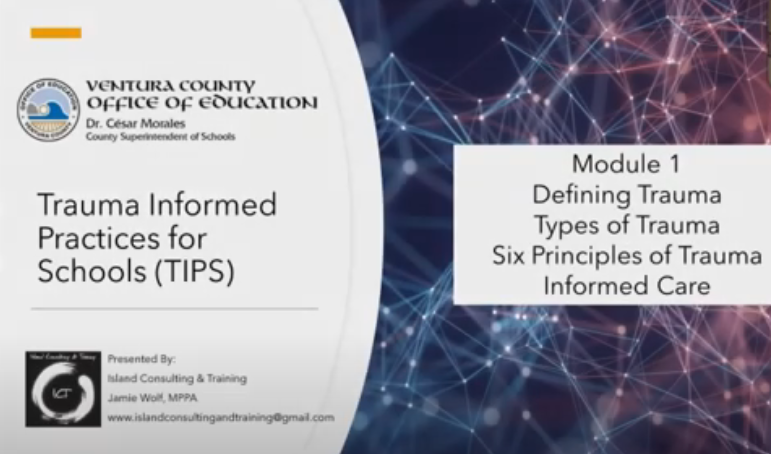
TRAUMA is an umbrella term used to describe the inability of an individual or a community to respond in a healthy way physically, emotionally, and mentally to acute or chronic stress.
Becoming “trauma‐informed” means recognizing that people often have many different types of trauma in their lives. People who have been traumatized need support and understanding from those around them. Often, trauma survivors can be re‐traumatized by well‐meaning caregivers and community service providers.
Video modules will guide viewers to:
- Learn about the physiological impacts of trauma on the brain and possible emotional, behavioral, social and intellectual/academic impacts on students in foster care (e.g., attachment issues, externalized behaviors, disabilities)
- Learn about the Adverse Childhood Experiences (ACES) studies and how they relate to life-long impacts for students impacted by trauma
- Learn about how schools and classrooms are creating trauma sensitive learning environments and strategies for responding to these impacts
- Hear about the importance of self-care: addressing our own traumatic experiences/history
Trauma Informed Practices Videos